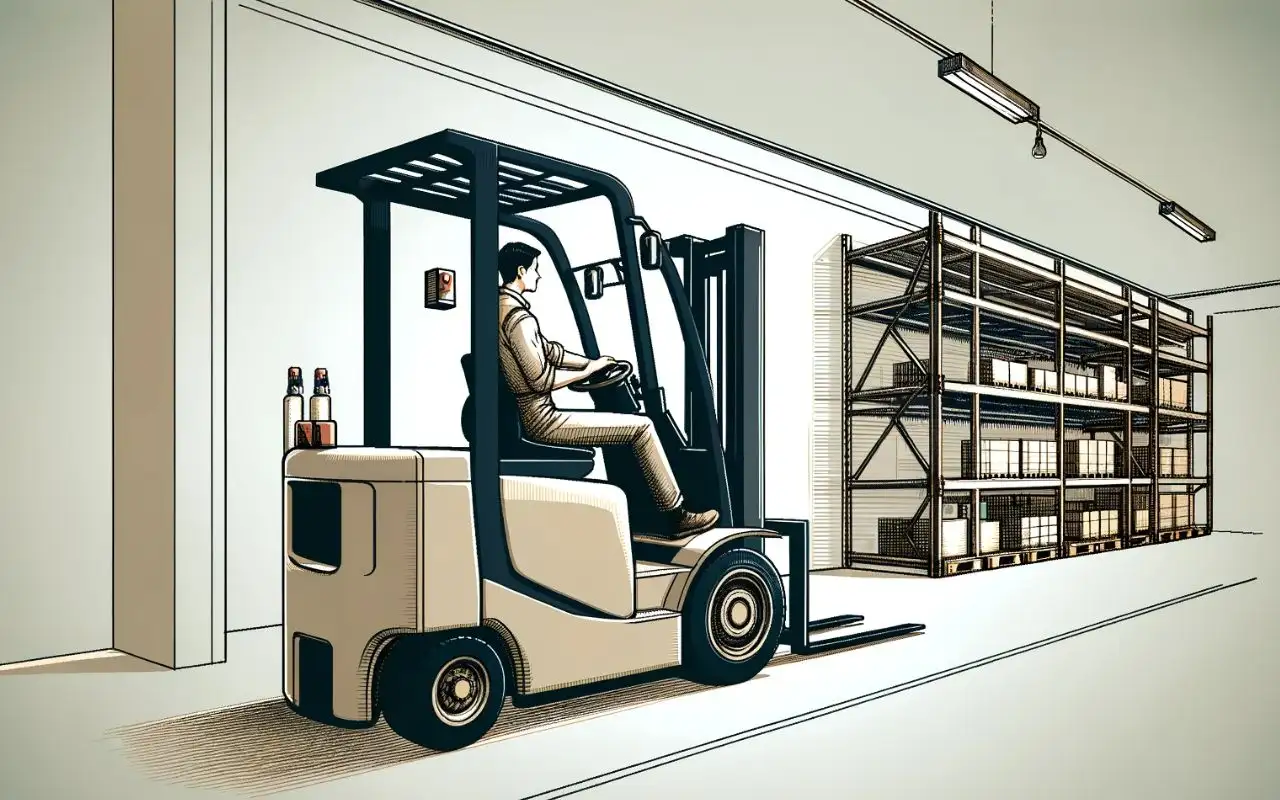A forklift operator, also known as a forklift driver, is the backbone of many industries, keeping goods moving efficiently in warehouses, factories, construction sites, and more.
They are the skilled professionals behind the wheel of those powerful industrial trucks, carefully maneuvering pallets, boxes, and other materials.
Their days involve loading and unloading deliveries, stacking items for storage, and transporting goods throughout the workplace. But it’s not just about driving; safety is paramount.
Forklift operators need excellent hand-eye coordination, spatial awareness, and a keen attention to detail to ensure safe and efficient operations.
They must also adhere to strict safety regulations, perform routine equipment checks, and report any potential hazards.
How Much Does A Forklift Operator Earn in South Africa
The average salary for a forklift operator in South Africa is R10,300 per month, based on 790 reported salaries as of 2024.
However, salaries can vary significantly based on factors such as experience, location, and employer.
Some top companies offer higher salaries, such as IMPERIAL with an average of R22,700 per month, while others like DURPRO WORKFORCE SOLUTIONS offer R4,300 per month.
Cities like Kempton Park, Gauteng, tend to pay higher, with an average salary of R14,100 per month, compared to Cape Town, Western Cape, where the average is R9,300 per month.
Factors Affecting Forklift Operator Salary in South Africa
Experience: Your years on the job significantly impact your pay. Novice operators typically earn less, while seasoned veterans with proven track records command higher salaries.
Location: Salaries vary across South Africa. Major cities like Johannesburg and Cape Town often offer higher wages compared to smaller towns or rural areas. Cost of living plays a role in this disparity.
Industry: Some industries, like mining or manufacturing, are known to pay forklift operators more due to the physically demanding nature of the work or potential hazards involved.
Employer: Different companies have varying pay scales based on their size, budget, and overall compensation philosophy. Larger corporations might offer more competitive salaries compared to smaller businesses.
Forklift Type: Operating specialized or complex forklifts, like reach trucks or container handlers, usually translates to a higher salary compared to driving standard counterbalance models.
Certifications: Possessing additional forklift certifications beyond the basic license demonstrates expertise and versatility, making you a more valuable asset and potentially fetching a higher wage.
Benefits and Allowances: Some employers offer benefits packages like medical aid, provident funds, or travel allowances, which can indirectly boost your overall compensation.
Union Membership: Being part of a union can provide access to collective bargaining agreements that guarantee minimum wage standards and potentially negotiate higher salaries or better working conditions.
Performance: Exceeding expectations, demonstrating initiative, and maintaining a clean safety record can sometimes lead to performance-based bonuses or salary increases.
Negotiation Skills: Don’t underestimate the power of negotiation. Researching average salaries in your area and industry, highlighting your qualifications and experience, and confidently communicating your value can help you secure a better compensation package.
Education and Qualifications of A Forklift Operator in South Africa
Basic Education: While formal education isn’t always mandatory, possessing a Grade 12 certificate demonstrates the ability to comprehend safety regulations and operating procedures.
Forklift Operator Training: Completing a registered forklift training course is essential. These courses cover safe operation, pre-operational checks, load handling techniques, and emergency procedures, culminating in a practical assessment and a license upon successful completion.
Forklift License: Holding a valid South African National Forklift Operator’s License (NFLO) issued by the Department of Labour (DoL) is mandatory for legal operation. The license typically specifies the types of forklifts you’re qualified to operate (e.g., counterbalance, reach truck).
First Aid Certification: Having a valid first-aid certificate demonstrates preparedness for potential on-site incidents and portrays a focus on safety and well-being.
Medical Fitness Certificate: Some employers require a medical certificate confirming your physical fitness for operating a forklift, ensuring you can meet the demands of the role.
Additional Certifications: While not always mandatory, obtaining endorsements for operating specialized forklifts like telehandlers or container handlers can expand your career options and potentially increase earning potential.
Dangerous Goods (Hazchem) Training: If your role involves handling hazardous materials, having a Hazchem certificate demonstrates awareness of safe handling procedures and regulations.
Computer Literacy: Basic computer skills can be helpful for accessing operational manuals, documenting inspections, or using warehouse management systems, depending on the workplace.
Driver’s License (Optional): Depending on the employer and workplace layout, a valid driver’s license might be beneficial for maneuvering forklifts on public roads or large outdoor areas.
Communication Skills: Clear and concise communication with colleagues and supervisors is crucial for ensuring safety and smooth operations.

